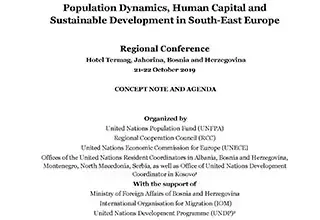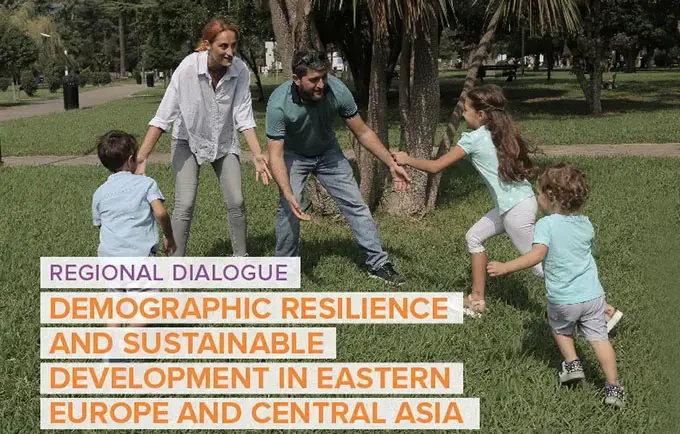The scale and speed of demographic change in South-East Europe has been significant. Countries and territories in the region face what is often perceived as a ‘population crisis’. Highly skilled people of reproductive age are leaving home to look for better opportunities elsewhere. Among those who stay, fertility rates are below are significantly below population-replacement levels. The social and economic implications of an ageing population are becoming increasingly apparent, and these trends have raised alarm among politicians, economists and the public. The fear is that ageing populations, outmigration and below-replacement fertility rates will lead to smaller, older and weaker nations.
But there are promising opportunities for the countries and territories of South-East Europe to manage the implications of demographic change not as a liability, but as potential for society. This requires progress on good governance, making economies more competitive and matching individual skills with labour-market demands. It also requires specific policies responding to the needs of families, women, men and children. These approaches require strong political leadership and readiness for change. The potential benefits are massive, and go far beyond increasing fertility rates. Because when young people have confidence in their future and women can fully participate in all spheres of society without having to give up childbearing, and when older people can continue to contribute to their societies, countries and territories are likely to grow, not only in numbers, but in opportunity, stability and prosperity for generations to come.
The Regional Conference on Population Dynamics, Human Capital and Sustainable Development will be convened on 21-22 October 2019 in Sarajevo, Bosnia and Herzegovina, by UNFPA. It will gather high-level representatives, academics, and civil society, the United Nations and other international institutions in South-East Europe, to discuss demographic trends as opportunities, where investments in human capital and respect of the rights of people, including women and young people, play a pivotal role.
The Conference will highlight promising population-policy options that support prosperity and human rights, based on the principles of the Programme of Action of the International Conference on Population and Development (ICPD PoA) and the 2030 Agenda for Sustainable Development. Discussions will result in a set of commitments (national and regional) for enhancing population policies focused on human capital, gender equality and human rights as well as strengthened regional cooperation on population dynamics and human-capital development among the countrie and territories in the region. Each country or territory will be requested to delegate high-level representatives responsible for family issues, education, health, employment or social welfare; parliamentarians; prominent CSOs, youth advocates and experts working in the relevant areas.
Download PDFs of Conference Presentations:
Session 1
Demographic Headwinds in Eastern and Central Europe (Andreas Tudyka)
Depopulation Hot Spots (Tim Judah)
Session 2
Ageing in the Balkans: Does migration matter? (Arjan Gjonca)
Demographic Change in South-Eastern Europe: Trends, determinants and challenges (Tomáš Sobotka)
Realizing the Potential of Living Longer (Vitalija Gaucaite Wittich)
Session 3
Family Policies: Fathers on leave (Anna Gromada)
Panel: Social and family policies (Anne H. Gauthier)
A Farm in Canada (Brian Williams)
Human Capital Investment: The bottom-up approach (Damir Mitric)
Human Capital in the Western Balkans: A missing link to growth and inclusion (Jamele Rigolini)
Financial Crisis: Fewer babies… (Stephanie Eble)



